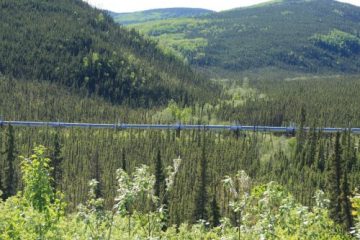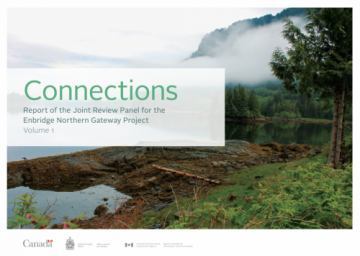I was part of a small group of people (along with Kai Chan of IRES and Anne Salomon of SFU) who have studied the Joint Review Panel’s report (JRPr) on the proposed Northern Gateway Pipeline Project (NGP). The federal government is set to make its decision on the NGP this month. Their decision will surely be heavily influenced by the positive recommendation of the JRPr; that all things considered, the NGP should be approved as it is in the best interests of Canadians. Whether the federal government approves the NGP or not – this is a huge decision. It will have significant repercussions for BC’s, Canada’s and the global environment, and have economic implications. Such significant consequences demand close scrutiny of the processes and inputs into the decision on the NGP.

The JRPr is not what it says it is
We found that the JRPr was lacking in five significant aspects that invalidate it as a basis for approving the NGP:
- it failed to provide adequate rationale for many of the conclusions of the report,
- it considered only narrowly-defined possible risks, but very broad potential benefits of the project,
- it relied too much on information from the proponent without independent evaluation of much of that material,
- it reported information and conclusions that conflict with related government policy or documents, and
- it inadequately treated the uncertainty of some risks of the project and defaulted to unproven proposed mitigation methods.
Scientific colleagues agree – the JRPr’s conclusion is not supportable
We outlined these deficiencies in a letter to Prime Minister Harper and his cabinet ministers on June 2nd. After only one week, 300 other scientists, many of them prominent natural and social scientists, signed our letter as show of support for the issue and our points.
Analysis lacking biodiversity expertise
There were many issues with the JRP process itself that were widely reported in the media and, as I have written before, the JRP did not include panelists with expertise in biodiversity issues relevant to the NGP (e.g., species-at-risk issues, valuation of biodiversity) which challenges many of the conclusions of the JRP that claim to simultaneously consider risks to the environment and potential economic gains.
Why did we bother and what’s the point?
The key point of our efforts is that the actual analysis and resultant content of the JRPr are simply too weak to be used as a justification for approving the NGP. There may well be a justification for the NGP after rigorous analysis of the full range of costs and benefits to the environment and society, but the JRPr does not come close to such an analysis. I hope that as many people as possible will understand the deficiencies of the JRPr as an example of the lack of, or poorly supported use of, science in public policy decision-making. The JRPr simply should not be used as a basis for the NGP decision and this was the jist of our letter to the Prime Minister.

Photos: [Banner] Oil pipeline by Edward Alexander, Flickr http://tinyurl.com/nl5zgkb.
[Thumbnail & Top] Alaska pipeline by Edward Alexander, Flickr http://tinyurl.com/khumh8x.
[Bottom] National Energy Board, http://tinyurl.com/ph9brl6.
